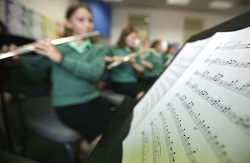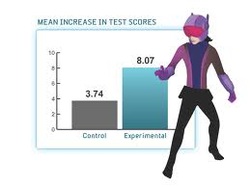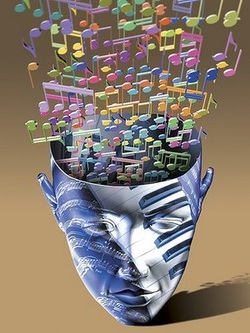
You've heard about it in the news. You've read about it in the newspapers and it can be found anywhere on the Internet. It seems like there is a little nation of young people living within The United States Of America. As of August 2010, there have been 4.5 million children diagnosed with ADHD or Attention Deficit Hyperactive Disorder. You've heard the term ADD, but it actually doesn't exist. I just want to clarify that when we use the acronym ADD, we are actually talking about Attenion Deficit Hyperactivity Disorder.
So does your child have ADHD? Do you know someone that has a child with the disorder? I'm sure you do. We all seem to know someone. It feels like the numbers of people diagnosed with the disorder are growing and that doctors are increasingly willing to prescribe medicine for it. In fact, there is a big discussion going on in the medical world about how many of the diagnosed children actually have ADHD.
Case Study
One study by Todd Elder, economist at Michigan State University, argues that many children are misdiagnosed with ADHD simply because they are the youngest in their class. Using a sample of nearly 12,000 children, Elder examined the difference in ADHD diagnosis and medication rates between the youngest and oldest children in a grade. The data comes from the Early Childhood Longitudinal Study Kindergarten Cohort, which is funded by the National Center for Education Statistics.
Elder's study says that the youngest kindergartners were 60% more likely to be diagnosed with ADHD than the oldest children in the same grade level. Similarly, when that group of classmates reached the fifth and eighth grades, the youngest were over twice as likely to be prescribed stimulants.
Overall, the study found that about 20% of the 4.5 million kids currently identified as having ADHD likely have been likely misdiagnosed by doctors. Wow! That's a lot.
If that's true, then that means teachers, parents, and doctors are jumping to diagnose simply because the child shows the common symptoms. So let's looks at the possible symptoms of ADHD:

- have a hard time paying attention
- daydream a lot
- not seem to listen
- be easily distracted from schoolwork or play
- forget things
- be in constant motion or unable to stay seated
- squirm or fidget
- talk too much
- not be able to play quietly
- act and speak without thinking
- have trouble taking turns
- interrupt others
So there are two types of children: the diagnosed and the misdiagnosed. And both are part of the ADHD Nation. If this trend continues, we will have a population of people who cannot concentrate and achieve any goals or objectives. How will our nation compete against the rest of world when we become distracted by distractions? There must be a solution to first end the misdiagnoses and then to find a solution for preventing diagnoses. There's got to be several solutions to this epidemic.
I am not a medical doctor or therapist. My expertise is within the world of music education and I can tell you that learning a musical instrument can help BOTH groups of children in fighting against all the symptoms that were listed above. I will explain why. Surely, there are solutions outside of the musical realm, but that is for other experts to comment on.
Benefit #1: Concentration
Learning a musical instrument develops concentration. This is because there are activities involved in learning an instrument that require concentration over extended periods of time. It doesn't happen overnight. It's a process. But daily practice of a musical instrument will push the limits of your child's ability to concentrate. Since concentration is needed to excel in any academic skill or life skill for that matter, the benefits will not only be a child that can play a musical instrument, but one that can excel in many areas of life.
Concentration is certainly an ingredient of success. We are worried about our children with ADHD because we don't know if they will have a bright future. Will they excel in school? Will they go to college? Will they graduate? Will they be able to find a good job and keep it? These are certainly worries that go through a parent's mind when they learn their child has ADHD. Ultimately, they are worried if their child will reach success in life. Concentration is a crucial element in becoming successful in any aspect of life. Music teaches concentration.

Also, learning a musical instrument is a “hands-on” type of learning. Children with ADHD or children with concentration problems will learn more effectively in this way. It's been scientifically proven that we learn better through hands-on interaction and engagement when compared to reading a book or listening to a teacher in the classroom.
Benefit #3: Relaxation
Another benefit that learning a musical instrument does for a hyperactive child or one with ADHD is relaxation. Music naturally relaxes us. There are certain types of music that can lower heart rate and blood pressure in a natural way. In fact, music therapy is being used more and more as a supplement to more traditional medical practices. Music styles that are taught in lessons such as classical and jazz have an enormous influence towards relaxation.
Benefit #4: Patience
And finally, patience is yet another benefit to learning a musical instrument. It is not easy to learn an instrument, and by overcoming small obstacles in the process of learning music will help your child later in life when more challenges arise.

Again, I'm not a doctor and therefore cannot give medicinal advice and I certainly am not qualified to diagnose a child. But, I would suggest that you strongly consider getting your child started in taking music lessons. If you're hesitant to give your child prescription drugs for a disorder he/she may not have, music could be a natural alternative. Who knows, you may one day be relaxing at the sound of your child playing the music of Mozart on the violin. Wouldn't that be ironic?
























 RSS Feed
RSS Feed